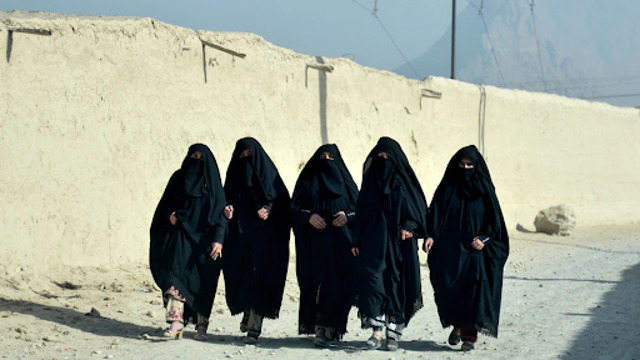
Women walk along a street in Kandahar, Afghanistan, on December 18, 2024. Getty Images
The Taliban has announced plans to shut down all national and international non-governmental organizations (NGOs) in Afghanistan that employ women. This move is the latest in a series of restrictions aimed at limiting the rights of women since the Taliban regained control of the country in August 2021. The decision comes after a similar order two years ago, which required NGOs to suspend the employment of Afghan women, allegedly due to concerns about the proper wearing of Islamic headscarves.
The Ministry of Economy issued a letter on Sunday night, warning that NGOs failing to comply with this directive would have their operating licenses revoked. This order will severely impact the humanitarian work being carried out in the country, especially since many NGOs rely on female workers to provide crucial aid to Afghan citizens.
The United Nations has expressed grave concern over the situation, stating that the restrictions on women’s rights in Afghanistan have continued to intensify. A UN spokesperson highlighted that the inability to employ women in key roles within NGOs has made it more difficult to provide life-saving humanitarian aid to those in need. With half the population, particularly women, facing severe poverty and a humanitarian crisis, the UN has urged the Taliban to reverse these policies.
According to the Ministry of Economy’s letter, the agency is responsible for overseeing all activities conducted by national and foreign organizations. The government’s latest directive orders that no female employees should be allowed to work in institutions that are not controlled by the Taliban. The letter further warned that any institution failing to cooperate would see its activities canceled and its operating license revoked.
This new directive is part of a broader attempt by the Taliban to regulate and control NGO operations in the country. The United Nations Security Council has already reported a growing trend of female Afghan humanitarian workers being stopped from carrying out their duties. Despite this, the Taliban insists they are not interfering with NGO activities or hindering their work.
Over the past few years, the Taliban has banned women from many jobs and public spaces, including excluding them from education beyond the sixth grade. In addition to these restrictions, the Taliban has issued a decree ordering that buildings must not have windows that face areas where women might sit or stand. This decree applies to both new and existing buildings and mandates that windows overlooking such spaces be blocked off by installing walls, fences, or screens. Municipal authorities are instructed to ensure that construction follows these rules to avoid violating the decree.
The United Nations has also condemned this latest restriction, calling for its reversal. The decree has raised concerns about further isolation and repression of women in Afghanistan, especially as the country continues to face an ongoing humanitarian crisis.
In a related development, Nila Ibrahimi, an Afghan woman who fled the country, was awarded the International Children’s Peace Prize 2024 for her efforts to amplify the voices of women. Despite these challenges, Ibrahimi’s recognition highlights the resilience of women in Afghanistan who continue to fight for their rights and freedoms.















